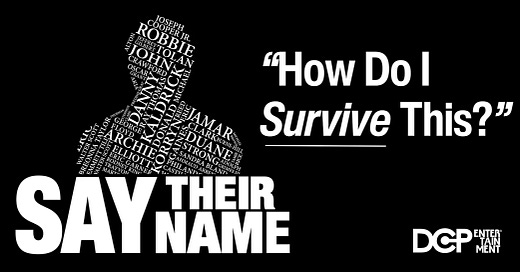In our latest "Say Their Name" episode, and our special series How Do I Survive This, we continue our conversation with Dr. Reynaldo Evangelista, a former Baltimore police detective turned academic, as we explore the critical responsibilities of law enforcement. His insights highlight the essential role of ethics and training in shaping effective and responsible policing.
The Ethical Foundation of Policing
Dr. Evangelista emphasizes a fundamental principle that we need to start from: "The police officer is supposed to be the gatekeeper of people's constitutional rights." This statement challenges us to reconsider the ethical foundation of law enforcement. While acknowledging that this ideal isn't always met, Dr. Evangelista insists it should guide every officer's actions. It also reminds us that even with all the lessons he shared with us about how to survive police encounters, the final outcome is not in our hands.
Professionalism and Responsibility
This central theme continues as he educates us on how in our discussion is the burden of professionalism is on police officers. Dr. Evangelista asserts, "The onus of being responsible, being compliant, being ethical should always start with the police first." This perspective places the primary responsibility for ethical conduct and de-escalation on officers, recognizing their training and authority.
Training and Oversight: Key to Ethical Policing
Dr. Evangelista identifies two critical areas that often lead to moral lapses in policing:
Inadequate Training: Learn how many issues arise from insufficient or outdated training, which fails to prepare officers for real-world challenges.
Lack of Supervisory Oversight: Learn how the lack of strong oversight leads to a lack of accountability, leading to unethical behavior.
Need For Reform: The Root of the Problem
These insights underscore the need for comprehensive training programs and robust oversight mechanisms to ensure ethical conduct, including:
The Use of Force
Alternatives to Force
Supporting Officer Mental Health
Understanding your Community
By focusing on these principles, we can work towards a model of policing that upholds public safety, respects constitutional rights, and fosters ethical behavior. As we continue to address issues of police conduct, insights like these are vital for driving meaningful change.
Ready to dive deeper into this crucial topic? Listen to the full episode for more invaluable in-depth insights from Dr. Reynaldo A. Evangelista. And remember, until truth and justice are obtained, we will always Say Their Name.





